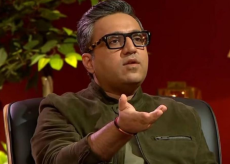The psychological underpinnings of poker through history

Prepend to the content

Poker, with its deck of cards and stacks of chips, has been a mainstay of social gatherings, casinos, and competitive arenas for centuries. Underneath, there’s a complex web of thoughts and feelings that have changed as the game has changed. Let’s explore how people’s thoughts and feelings over time have influenced poker and made it the game it is now.
We must start to look at poker holistically, rather than simplistically. What this means is that we want to look at poker on the whole, rather than looking at it hand-by-hand, moment-to-moment. , Imagine instead of focusing on one thing at a time, you’re looking at a bunch of things together. It’s like comparing groups to groups instead of one thing to another. Let’s take an example to understand it better.
When you’re learning poker, you go through three stages in how you think about the cards you and your opponent have.
First, you start with basic thinking. You look at your hand, like having a good pair, and guess what your opponent might have. Then you decide what to do based on that guess. This is how beginners play. When you get better, you start thinking about how your hand compares to all the possible hands your opponent could have. You think about things like how your pair compares to their different types of hands. This involves doing some math to figure out your chances of winning. At the highest level, you not only think about your opponent’s possible hands, but also consider all the possible hands you could have and how they match up against your opponent’s range of hands. This takes a lot of experience and skill.
As you play more, your brain gets better at automatically handling these kinds of calculations, freeing up your mind to think about bigger strategies in the game.
It’s not about being smart—it’s about practice and psychology. Once you’ve played a lot, you’ll find yourself naturally thinking about these higher-level ideas during the game.
Origins: A Glimpse into the Past
Poker started in the 1800s in America, mostly on boats floating down the Mississippi River. People really liked it, and it quickly became famous all over the country. People loved playing poker because it wasn’t just about winning money; it was also about outsmarting others and playing mind games at the poker table.
Bluffing: The Art of Deception
In poker, bluffing is super important. It means pretending you have a better hand than you really do. People have been doing this since poker started, way back in the Wild West days. Famous players like Wild Bill Hickok and Doc Holliday were experts at bluffing. They’d use their tough reputations to scare other players into giving up.
Let’s take the case of Wild Bill Hickok. In one famous instance in 1876, Hickok was playing poker in a saloon in Deadwood, South Dakota. He reportedly held a hand with a pair of black aces and a pair of black eights, which later became known as the “dead man’s hand.” During the game, Hickok allegedly bluffed to make others think he had a much stronger hand than he actually did. This reputation for bluffing and his intimidating presence at the table made his opponents nervous, and it’s said that they folded, giving Hickok the win despite his not-so-great hand. This event further solidified Hickok’s legendary status as a skilled bluffer in the history of poker.
Nowadays, bluffing is still a big deal in poker, but it’s changed a bit. With poker being shown on TV and played online, players have to bluff in different ways. They can’t just rely on reading someone’s face or body language. Instead, they have to be good at what’s called “virtual” bluffing. This means using things like how they bet and when they bet to trick their opponents, even though they can’t see each other in person. It’s all about adapting to the digital world of poker.
Risk-Taking and Decision-Making
In poker, people have to take risks and make choices without knowing everything for sure. They have to think about what they could win and what they might lose, even when they don’t have all the facts. This is a lot like real life, where people often have to make tough decisions with uncertain outcomes.
One famous example of taking a big risk in poker happened in 2009. A Swedish player named Viktor Blom, who goes by the name “Isildur1,” made what people call the “Bluff of the Century.” He was playing a really important online poker game against a pro named Tom “durrrr” Dwan. Blom pretended he had a great hand, even though he didn’t. It was a huge gamble, but it paid off. Blom won the game and became even more famous for being really brave at the poker table.
Emotional Control
Keeping your emotions in check is super important in poker. You need to stay cool and collected, even when things get tough, so you can make smart choices. But it’s not easy to stay calm, especially when you’re in the middle of a game.
In 2011, during a big poker tournament called the World Series of Poker, Phil Ivey had a tough moment. He was playing an important hand with another player, and there was a lot at stake. Even though everyone was watching him closely and he was under a lot of pressure, Ivey stayed calm and focused. He thought carefully about what to do and made a brave choice that needed him to keep his emotions in check.
The other player bet a lot of chips, which usually means they have a good hand. But Ivey thought they were just pretending to have a good hand, based on how they acted before in similar situations. Even though he might lose a big part of his chips, Ivey stayed cool and decided to call the bet.
Turns out, Ivey was right. He won the hand and moved up in the tournament. This story shows how important it is to stay emotionally strong, even when things are tough, because it can help you make the right decisions and do well in poker.
Poker Psychology Adapting to the Digital Age
When online poker became popular in the late 1900s, how players thought about poker changed a lot. People couldn’t see each other’s body language anymore, so they had to find new ways to understand their opponents. This led to using things like how people bet online to figure out what they were thinking. It also led to the rise of computer programs called AI poker bots. These bots are really smart and can make decisions like humans do, making the game even more challenging for players. The ongoing battle between humans and AI in poker shows how the game keeps changing and how important psychology is in poker, even in the digital age.
Poker isn’t just about cards and chips; it’s a mix of psychology, strategy, and luck. Over time, players have dealt with the tricky psychology of the game, like bluffing and taking risks, as well as controlling their emotions and adapting to different situations. By understanding these psychological parts of poker, we can learn not just about the game itself, but also about how people behave and make decisions in other situations. As poker keeps changing, we’ll keep learning more about its tricky psychology.
The post The psychological underpinnings of poker through history appeared first on G2G News.



